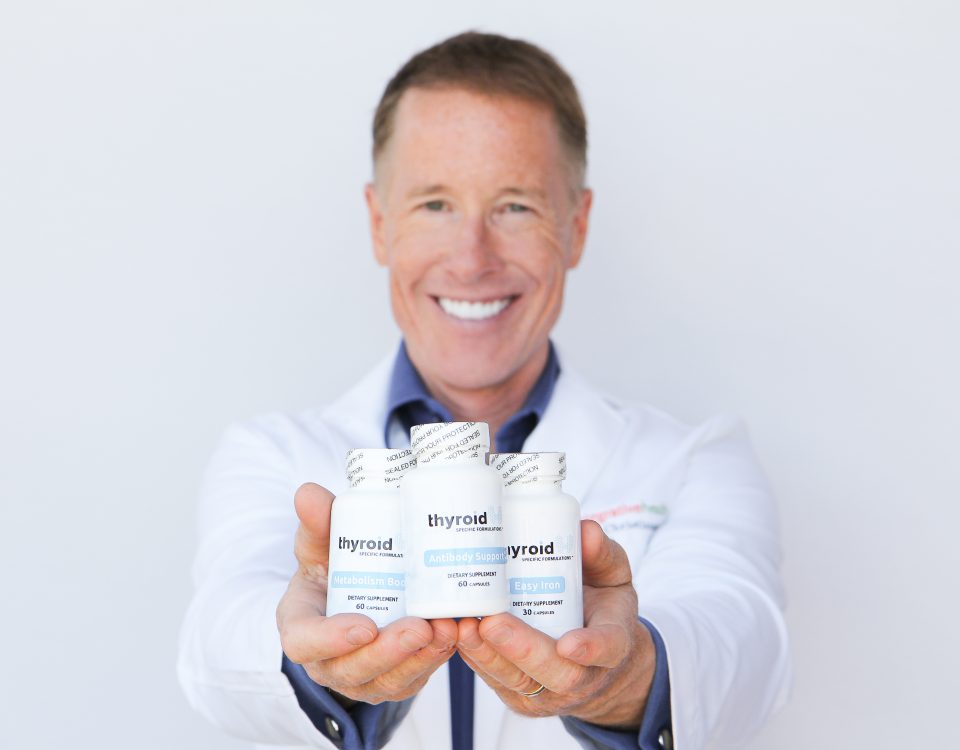Is your thyroid fine? Do you have hypothyroidism? Do you have Hashimoto’s? Do you have both? This is a critical point that I’d love to give you clarity on!
Your thyroid can be in one of three stages: normal, underactive, or overactive.
These are also called:
- Normal = euthyroid
- Underactive = hypothyroid
- Overactive = hyperthyroid
How do you remember which is which? I think hyperthyroidism is the easiest one to start with. Think about a person whose hyperactive. They are overactive and it’s the same way with the thyroid.
For hypothyroid, think about a needle that goes below the skin. We call that a hypodermic needle because hypo means under. Hypothyroidism means that your thyroid is underactive and is making too little hormone.
Euthyroid means it is normal, or working good. Think about eulogy which means good words.
Think about the states as the speed of a car. When you’re hypothyroid, the car is going too slow. When you’re hyperthyroid, the car is going too fast.
This can happen because of what the thyroid is doing by itself or because of medicines someone is taking. It can be caused by internal factors or external factors.
Back to the car example, imagine that the car ran out of gas. That would be the car going to slow because of an internal factor. Now imagine that the car was stuck in the mud. That would be the car going too slow because of an external factor.
Internal = endo like endodontist who works on the inside of teeth.
External = exo like the exoskeleton on an insect.
When the thyroid can’t make enough hormone, the state is endogenous hypothyroidism. When a nutrient or medication is blocking the thyroid, we call it endogenous hypothyroidism.
Learning About Hashimoto’s
Hashimoto’s is a disease that damages the thyroid, usually leading to endogenous hypothyroidism. Nearly all people who have problems with their thyroid have Hashimoto’s even though most have never heard the term.
We know someone has Hashimoto’s when they:
- Have positive thyroid peroxidase antibodies on a blood test
- Have positive thyroglobulin antibodies on a blood test
- Have signs of Hashimoto’s on their ultrasound
- Have signs of Hashimoto’s on a thyroid biopsy
- Have hypothyroidism for no other reason
An important point is that even though thyroid antibodies prove that someone has Hashimoto’s, having negative thyroid antibodies does NOT prove they don’t have Hashimoto’s. In fact, up to 40% of those with Hashimoto’s never have positive thyroid antibodies.
Grave’s Disease
The next most common thyroid disease is called Grave’s disease. My apologies to Dr. Robert. J Grave, but it is a horrible name to use for a disease. Especially for a disease that causes chemical anxiety.
Grave’s disease is the most common cause of hyperthyroidism and it is diagnosed by blood tests as well.
As different as they can be, the diseases are really very similar. Hashimoto’s is a destruction of the part of the gland that builds hormones, whereas Grave’s is a destruction of the part of the gland that controls the release of hormones.
States and diseases are separate but overlapping factors. Most who have an underactive thyroid (hypothyroidism), have it because of an autoimmune disease called Hashimoto’s disease. Most whose gland is overactive (hyperthyroidism) have it because of Grave’s disease.
If your thyroid is off and you know nothing else, you likely have Hashimoto’s disease.
The good news about all of this is that you can get your health back. By working with a good doctor to find the root causes of your Hashimoto’s or Grave’s disease, you can also improve your thyroid function and prevent other autoimmune diseases.










